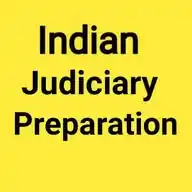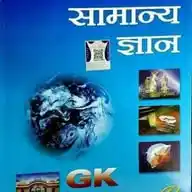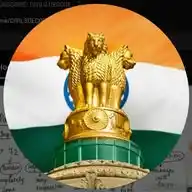
Indian Judiciary Preparation PCS J™ Judiciary Notes UP Judiciary Delhi Judiciary Bihar MP Judiciary
8.1K subscribers
About Indian Judiciary Preparation PCS J™ Judiciary Notes UP Judiciary Delhi Judiciary Bihar MP Judiciary
*Telegram Channel* https://t.me/Indian_Judiciary_Preparation 𝘛𝘩𝘪𝘴 𝘊𝘩𝘢𝘯𝘯𝘦𝘭 𝘰𝘯𝘭𝘺 𝘥𝘦𝘥𝘪𝘤𝘢𝘵𝘦 𝘵𝘰 𝘐𝘯𝘥𝘪𝘢𝘯 𝘑𝘶𝘥𝘪𝘤𝘪𝘢𝘳𝘺 𝘗𝘳𝘦𝘱𝘢𝘳𝘢𝘵𝘪𝘰𝘯 *Facebook Page* https://www.facebook.com/LawForCivilServices?mibextid=ZbWKwL *Instagram:-* https://www.instagram.com/invites/contact/?i=1cificp4z0obz&utm_content=nken23o *Indian Judiciary Preparation* https://whatsapp.com/channel/0029Va98EuXB4hdTXjjCWK2n *Judicial Services* https://whatsapp.com/channel/0029Va4Kw1972WTv8QxTPr0M *Law LLB Notes* https://whatsapp.com/channel/0029Va9FXaFLtOj4W4BrLs3h *UP Judiciary* https://whatsapp.com/channel/0029Va4Jow7BKfhtL08i1R0r *Law For Civil Services* https://whatsapp.com/channel/0029VasTfge1Xquf4u0M7f0j *APO Preparation* https://whatsapp.com/channel/0029VasDKyYC6ZvnJAtZEJ23 *Rajasthan Judiciary* https://whatsapp.com/channel/0029VasYX8i5vKA1oxsTgC3Z *Bihar Judiciary* https://whatsapp.com/channel/0029VawyLR85Ui2gilUenp3c *Delhi Judiciary* https://whatsapp.com/channel/0029VasWkNu30LKTc2WzSJ1F *Judiciary* https://whatsapp.com/channel/0029Vax8SyX8KMqoGvi0RA27 *MP Judiciary* https://whatsapp.com/channel/0029VasOeOsAYlUIzaOqJC2N *Follow US 👆*
Similar Channels
Swipe to see more
Posts

✅ *Indian Judiciary Preparation* ✅ https://whatsapp.com/channel/0029Va98EuXB4hdTXjjCWK2n ✅ *Law LLB Notes* ✅ https://whatsapp.com/channel/0029Va9FXaFLtOj4W4BrLs3h *✅ Judicial Services ✅* https://whatsapp.com/channel/0029Va4Kw1972WTv8QxTPr0M ✅ *UP Judiciary ✅* https://whatsapp.com/channel/0029Va4Jow7BKfhtL08i1R0r *Join fast*

*🛡️The Income-tax Bill, 2025* *Key Features* ♟️ *Qualitative Improvements* ♟️Simplified language, making the law more accessible. ♟️Consolidation of amendments, reducing fragmentation. ♟️Removal of obsolete and redundant provisions for greater clarity. ♟️Structural rationalization through tables and formulae for improved readability. ♟️Preservation of existing taxation principles, ensuring continuity while enhancing usability. ♟️Crypto as Property: Virtual digital assets such as cryptocurrencies have been included in the definition of property to be counted as a capital asset. ♟️Dispute Resolution: It provides the points of determination, decision, and the reasons behind it, marking a shift from the earlier section, which lacked clarity on the manner of issuing DRP directions. ♟️Capital Gain Exemptions: Section 54E of the Act, which details exemptions for capital gains on transfer of capital assets prior to April 1992 has been removed. ♟️Tax Year: The Bill introduces the concept of “tax year”, which has been defined as the 12-month period beginning April 1.

*🛡️Dissolution* ♟️Rajya Sabha, being a permanent House, is not subject to dissolution. Only the Lok Sabha is subject to dissolution. ♟️Unlike a prorogation, a dissolution ends the very life of the existing House, and a new House is constituted after general elections are held. ♟️The dissolution of the Lok Sabha may take place in either of two ways: 1. Automatic dissolution, that is, on the expiry of its tenure of five years or the terms as extended during a national emergency; or 2. Whenever the President decides to dissolve the House, which he is authorised to do. Once the Lok Sabha is dissolved before the completion of its normal tenure, the dissolution is irrevocable.

*UPSC Polity* https://whatsapp.com/channel/0029Va4aFVl0gcfBVrRsAh21 *Join US*

🛡️ *Appointment Of Judges* ♟️The judges of the Supreme Court are appointed by the president. ♟️The chief justice is appointed by the president after consultationl with such judges of the Supreme Court and high courts as he deems necessary. ♟️The other judges are appointed by president after consultation with the chief justice and such other judges of the Supreme Court and the high courts as he deems necessary. ♟️The consultation with the chief justice is obligatory in the case of appointment of a judge other than Chief justice.

*🛡️Appointment Of Chief Justice* ♟️From 1950 to 1973, the practice has been to appoint the seniormost judge of the Supreme Court as the chief justice of India. ♟️This established convention was violated in 1973 when A.N. Ray was appointed as the Chief Justice of India by superseding three senior judges. ♟️Again in 1977, M.U. Beg was appointed as the chief justice of India by superseding the then senior-most judge. ♟️This discretion of the government was curtailed by the Supreme Court in the Second Judges Case (1993), in which the Supreme Court ruled that the seniormost judge of the Supreme Court should alone be appointed to the office of the chief justice of India.

*Emergency Provisions* ♟️The Indian Constitution contains elaborate emergency provisions to enable the President to meet any extraordinary situation effectively. ♟️The rationality behind the incorporation of these provisions is to safeguard the sovereignty, unity, integrity and security of the country, the democratic political system and the Constitution. ♟️The Constitution envisages three types of emergencies, namely: (a) National emergency on the ground of war or external aggression or armed rebellion16 (Article 352); (b) State emergency (President’s Rule) on the ground of failure of Constitutional machinery in the states (Article 356) or failure to comply with the directions of the Centre (Article 365); and (c) Financial emergency on the ground of threat to the financial stability or credit of India (Article 360).

*Happy Republic Day 🇮🇳 ❤️ 🇮🇳*

*🛡️Constitutional bodies in India* ♟️Attorney General of India ♟️National Commission for Scheduled Castes, ♟️National Commission for Scheduled Tribes, ♟️National Commission for Backward Classes, etc. *🛡️Statutory Bodies in India* ♟️National Commission for Women ♟️Central Vigilance Commission ♟️National Green Tribunal

🛡️ *AD HOC JUDGE* ♟️When there is a lack of quorum of the permanent judges to hold or continue any session of the Supreme Court, the Chief Justice of India can appoint a judge of a High Court as an ad hoc judge of the Supreme Court for a temporary period. ♟️He can do so only after consultation with the chief justice of the High Court concerned and with the previous consent of the president. ♟️The judge so appointed should be qualified for appointment as a judge of the Supreme Court. ♟️It is the duty of the judge so appointed to attend the sittings of the Supreme Court, in priority to other duties of his office. While so attending, he enjoys all the jurisdiction, powers and privileges (and discharges the duties) of a judge of the Supreme Court.













